MyBotany Pongamia Pinnata
Harvest bio-fuel from trees that heal your land.
The cleanest source of bio-fuel comes from the seeds of the versatile Pongamia Pinnata tree. We plant them non-invasively on your land with little nutritional maintenance to improve and restore infertile and damaged soil no matter how extreme environmental conditions may be.
Pongamia Pinnata
solves it all.
Cheaper than fossil fuels.
The energy crisis solved.

As good a pure diesel with less CO2 emissions.
Studies have shown that when blended with other fuel, it is as efficient as pure diesel. When combusted, it shows lower harmful emissions such as carbon monoxide and smoke.

Shortlisted as aviation fuel by the Japanese government.
Japan is among the first to shortlist Pongamia as fuel for aviation. Other countries are soon to follow as crude oil becomes more scarce and expensive.
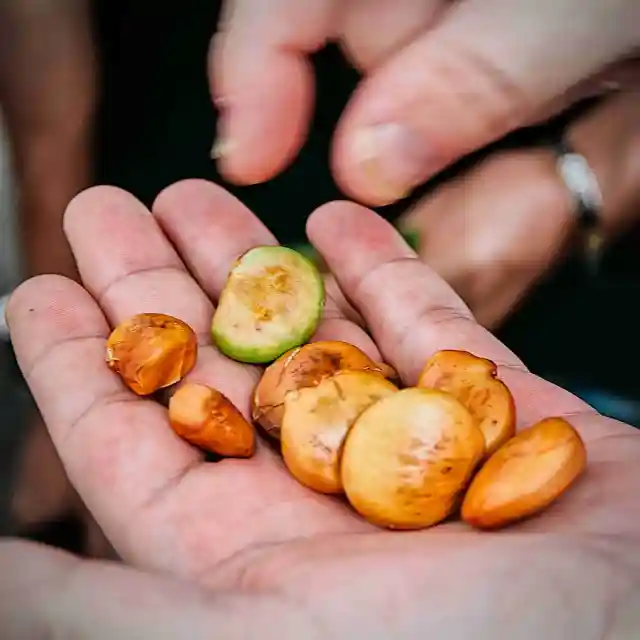
Why this tree specifically?
Pongamia Pinnata restores your degraded land at low cost.
Locally known as Pokok Mempari, Malapari, or Kayu Laut in Bahasa Malaysia, the Pongamia tree is able to restore your land through a process called Nitrogen-fixing which heals your land.
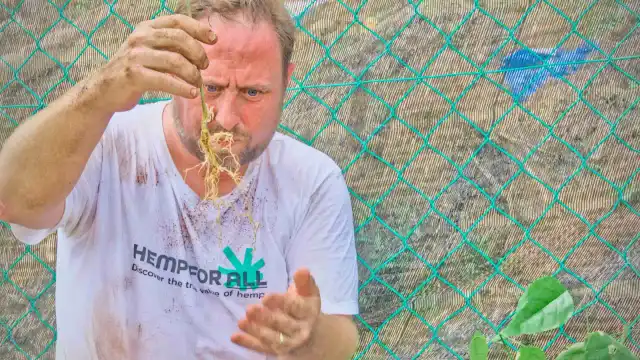
1. Pongamia gets Nitrogen from the air.
Pongamia synergises well with Rhizobium bacteria to convert Nitrogen in the air into compounds that plants can absorb, reducing the need for fertiliser when growing Pongamia.
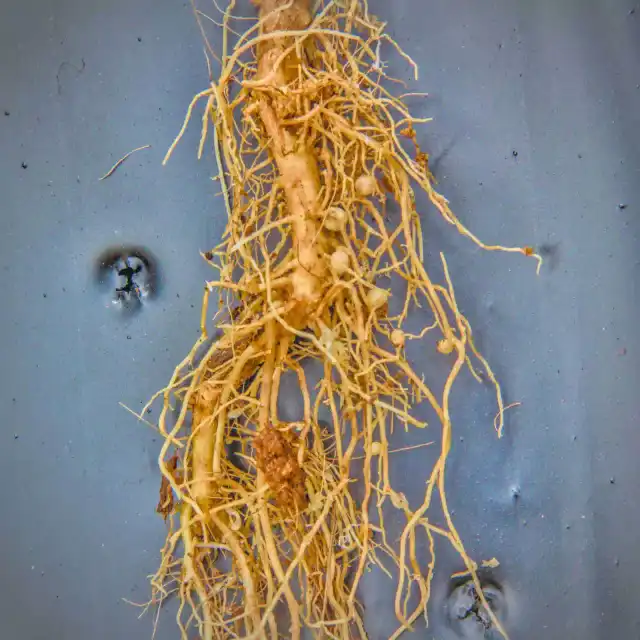
2. Nitrogen is stored in round nodules in the roots.
The Nitrogen compounds generated also transfer to the soil around the Pongamia tree, restoring the surrounding land.
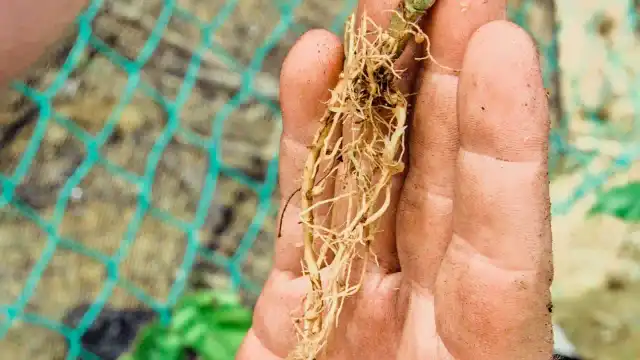
3. Sustains your crops and removes CO2 from the air.
It's not just about the environment.
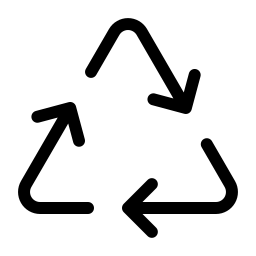
Medicinal
“Its anthelmintic nature helps in treating ophthalmic, dermal, and vaginal ulcers. P. pinnata leaves are digestive, laxative, and anthelmintic, and they can help in treating diarrhea, leprosy, dyspepsia, and cough. Flowers are useful in diabetes dypsia, as well as vata and Kapha imbalances.”

Delicious food
Terviva makes foods from pongamia oils based on research that shows it has no toxicological difference in rats[source]. One of their first products is their Aloha special edition chocolate bar.

As nutritious as soybean
A 2016 study fed extracted pongamia cake to dairy cattle at a 50% protein replacement for soybean meal (5% of the total ration) in their diet for 90 days. The study used methanol as a solvent for extraction of the meal.

Animal feed
A 2020 study fed extracted pongamia cake to lambs at a 50% protein replacement for de-oiled groundnut (peanut) meal in their diet for 98 days.
Our first experiment on Malaysian soil.
The Green Trees Program (TGT)
Located in Kota Tinggi, Johor Bahru, we have begun planting 420 seedlings (300 from P2X Thailand, 120 from P2X Indonesia) to test the viability of Pongamia on Malaysian soil while remaining carbon neutral.
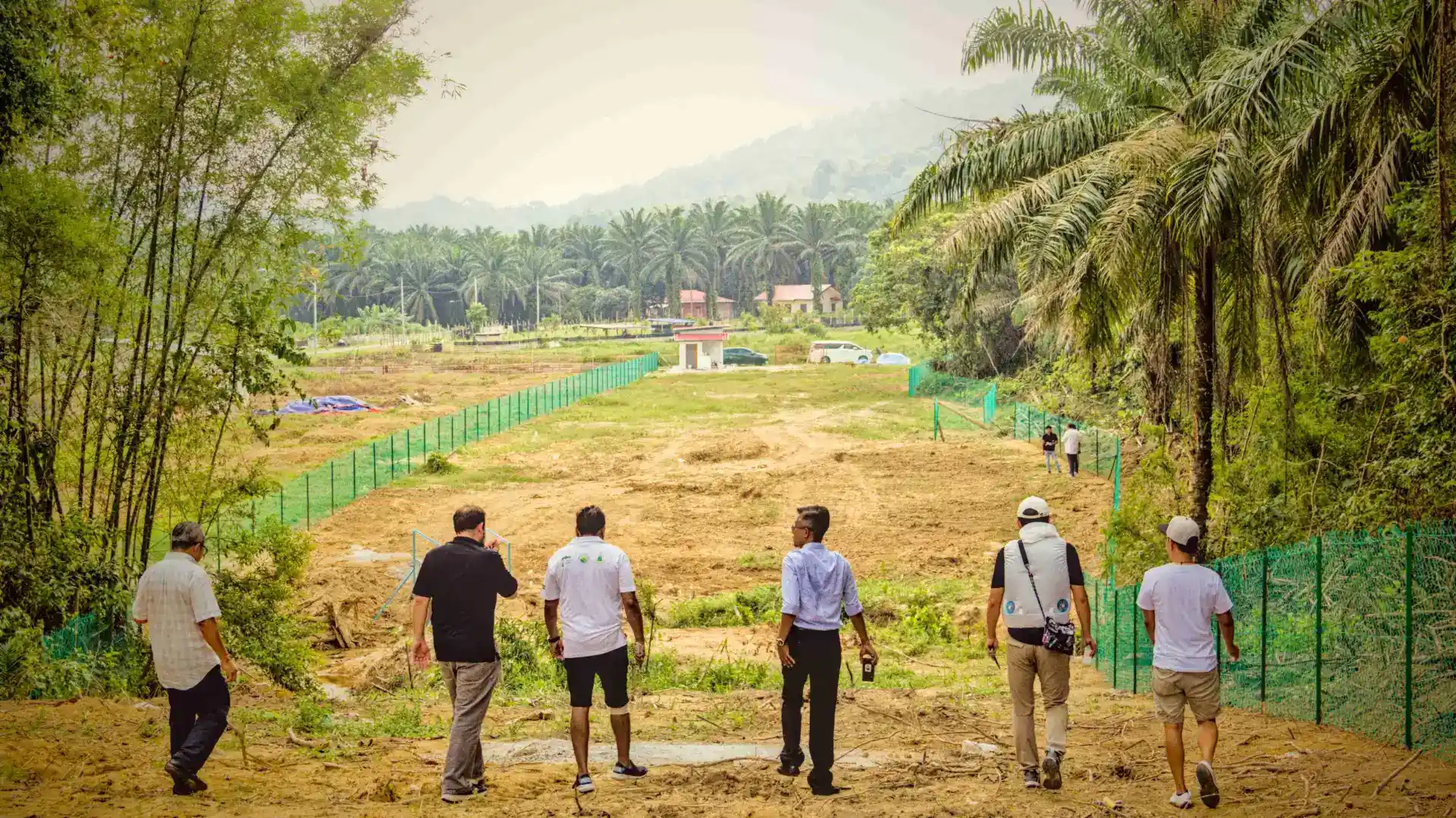
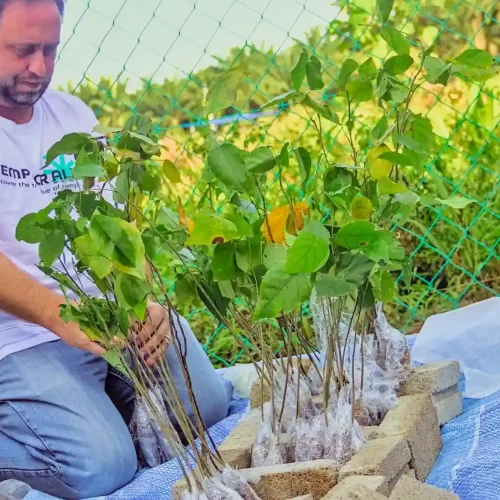
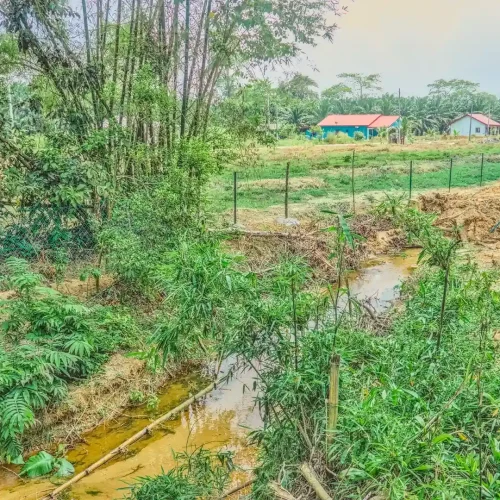
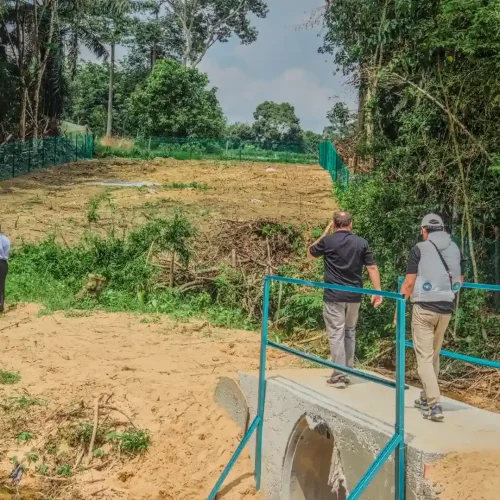
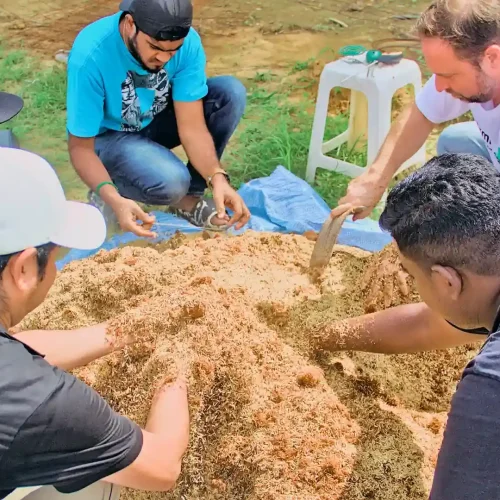
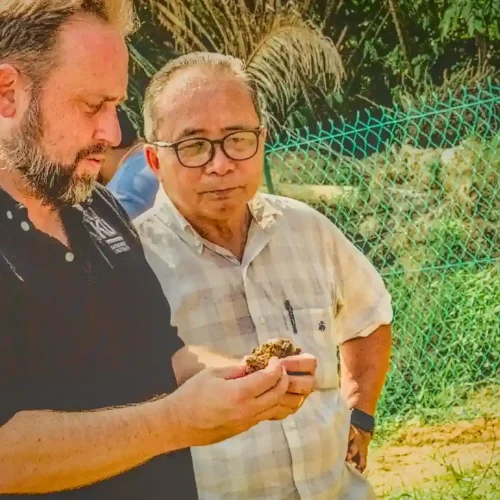
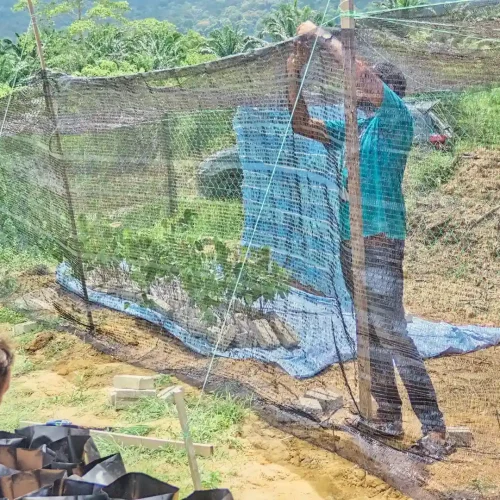
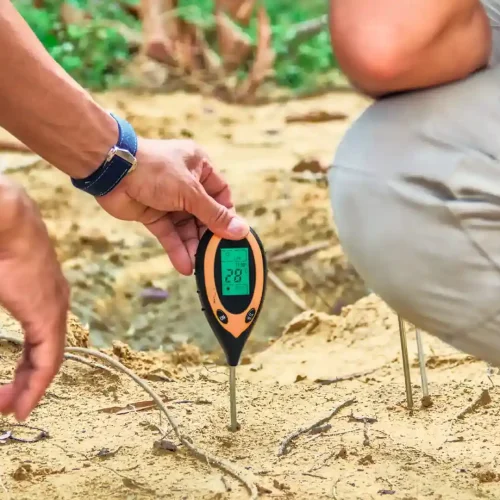
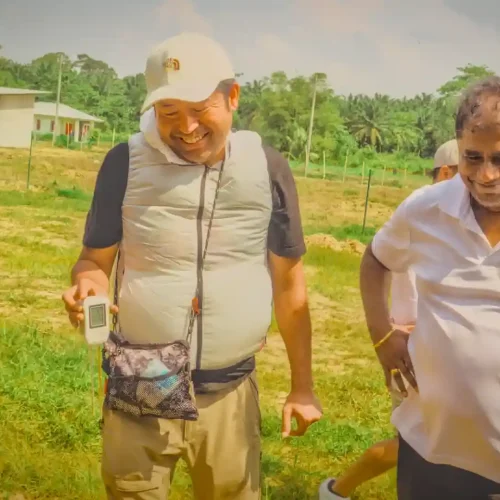
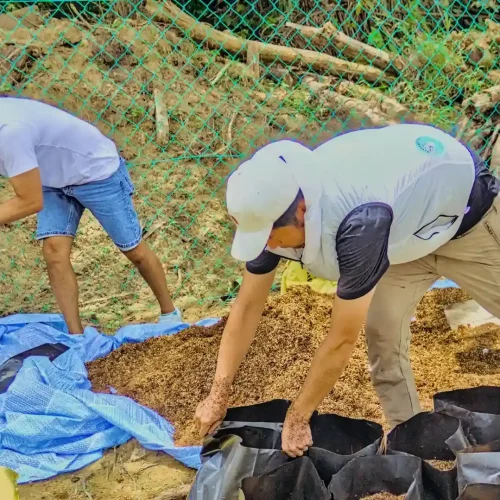
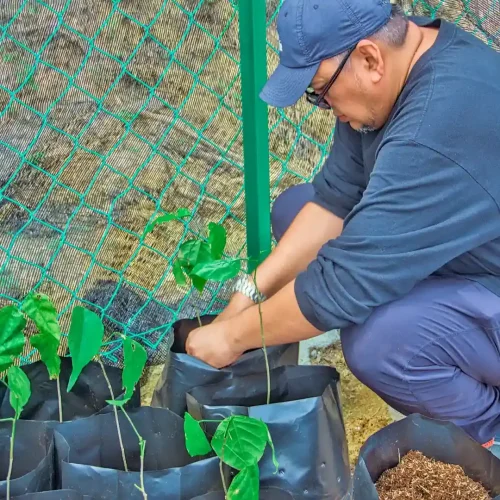
How we at DAIO help you.
Malaysia stands to benefit the most from Pongamia.
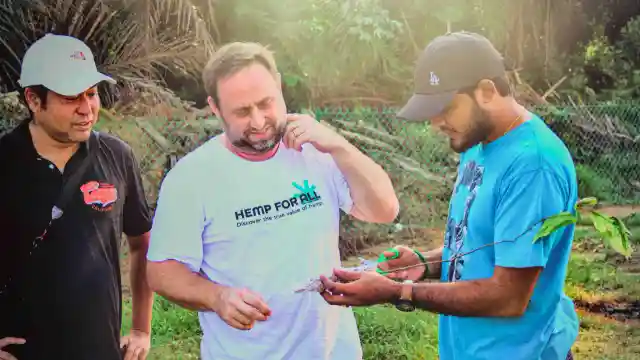
Roadmap
TGT Program Timeline
2024
Land Acquisition
- Establish 5,000 hectars state or federal land.
- Nominal-leased land or JV with major plantations conglomerate/GLCs.
- Preliminary mini plantation site set-up in Kota Tinggi, Johor.
Funding
- Promoting the initiative to get project grants/funding.
2025 / 2026
Cultivation
- Land clearing / landscaping Logistic set-up.
- Planting 3 million trees in 3 years time.
CSR
- Initiate local research programs for biofuel domestic usage.
- Promoting environmental campaigns such as reforestation and land regeneration by planting Pongamia
2030
Harvest
- Weeding and top-dressing.
- Gathering and processing of Pongamia seeds twice a year
- No replanting needed for future harvest cycle
- Exporting the seeds to Japan, Singapore and Australia
Future projects
- Scale up the plantation land
- Manufacture own biofuel in Malaysia
Contact Us
Invest and partner with our initiative.
Call Us:
+(60) 37 890 6684
Email Address:
hello@daiointernational.com
Location:
Unit 39-02 (East Wing), Q Sentral, 2A Jalan Stesen Sentral 2, KL Sentral, 50470 Kuala Lumpur